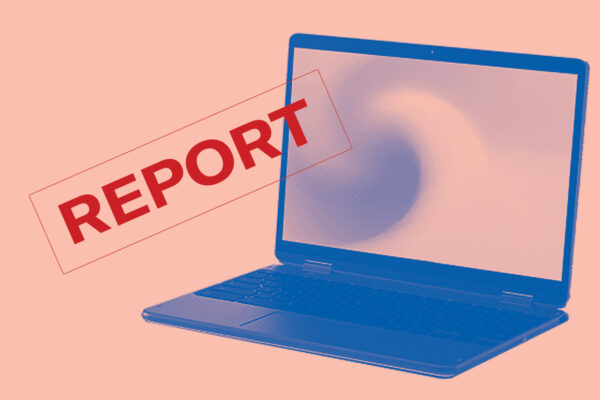Raising alarm about the lack of privacy for students and their families, the ACLU of Rhode Island today released a report showing that many school districts in the state give themselves the right to remotely spy on students through the use of school-loaned laptop computers. Under so-called “1 to 1” programs, in which a majority of school districts in the state participate, a private vendor provides free laptops or tablet computers for the school year that students can use at home. With this program, however, the ACLU found, students and their families are often required to surrender basic privacy rights.
The ACLU report, entitled “High School Non-Confidential: How School-Loaned Computers May be Peering into Your Home,” highlights that, in many districts, policies allow school officials to remotely access the student laptops at home – including the computer’s webcam and microphone - at any time, and for any reason.
The ACLU’s privacy concerns are not hypothetical, as the report highlights the widely publicized case some years ago involving a Pennsylvania school district that surreptitiously took more than 50,000 screenshots of students via remote access to the webcams of their school-loaned laptops. Given this and other important issues, the report concludes that RI state legislators should adopt a standard policy to protect the privacy of students and their families.
The 12-page ACLU report looks specifically at the policies of the 22 local school districts where laptops are provided to students for home use during the school year. In addition to raising concerns about the authority school officials give themselves to remotely access the laptop’s webcam and microphone, the report identified several other related troubling trends:
- In loaning students the laptop computers or Chromebooks to use at home, school districts require students and parents to acknowledge they have no expectation of privacy whatsoever regarding the device at any time – even if students are allowed to use it for non-school reasons and parents are encouraged to use it too.
- Only a handful of school districts affirm that they will not remotely operate the computers’ camera or audio recording mechanisms.
- Most school district policies allow school officials to remotely access and or search the content of the devices at any time – including files, web history and other information – in the absence of any suspicion of misconduct.
- The majority of policies also allow school administrators and teachers to physically inspect the devices at any time and for any reason.
“School officials simply should not have the right to use a computer lending program as an excuse to spy on families in the privacy of their own homes,” said Steven Brown, executive director of the ACLU of RI, “but that is precisely what their policies allow.” Added ACLU of RI policy associate Marcela Betancur, “In surveying the school districts for this report, I was shocked to see their complete lack of respect for student and parents’ privacy rights. In order to protect those rights, this report makes clear that the state needs to adopt uniform standards for school districts who participate in 1 to 1 programs.”
The report notes that while the 1 to 1 programs are quite beneficial, “too many schools require students – and their parents – to give up any rights to privacy to participate in the program.” Also noteworthy is the report’s finding that only six RI school districts accommodate poorer families by providing free or reduced insurance coverage for the devices.
The report lays out several policy recommendations, including restricting remote access to the content of the devices, banning remote activation of the computers’ webcam or microphones, implementing standards for searches that are based on reasonable suspicion of misconduct, and providing low- or no-cost insurance coverage for needy families.

